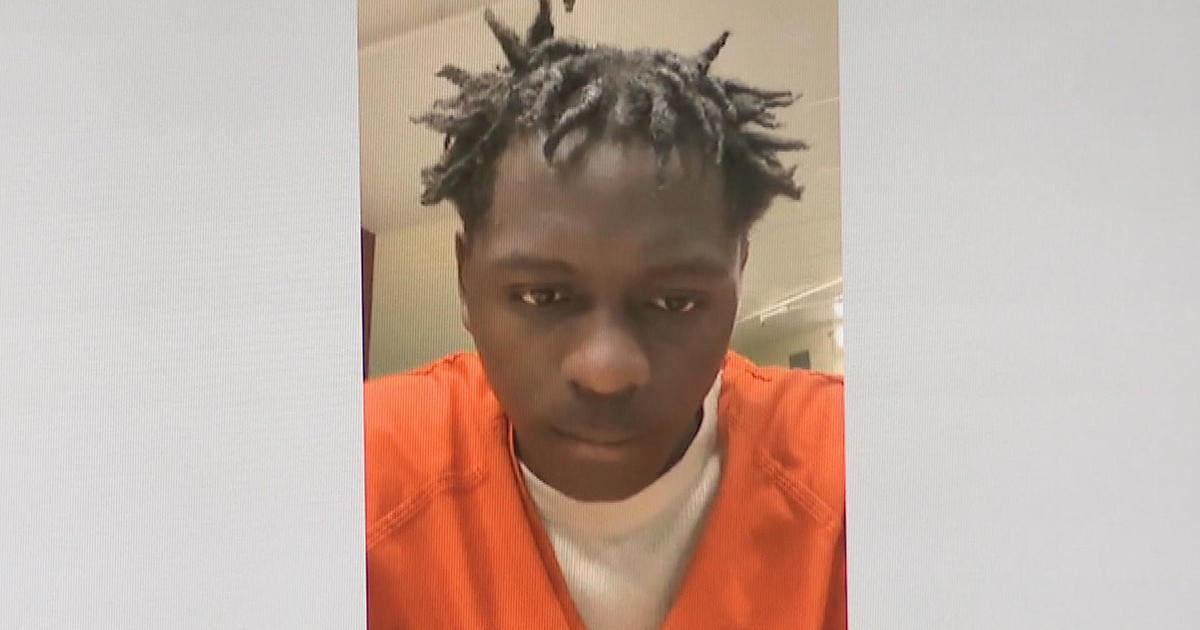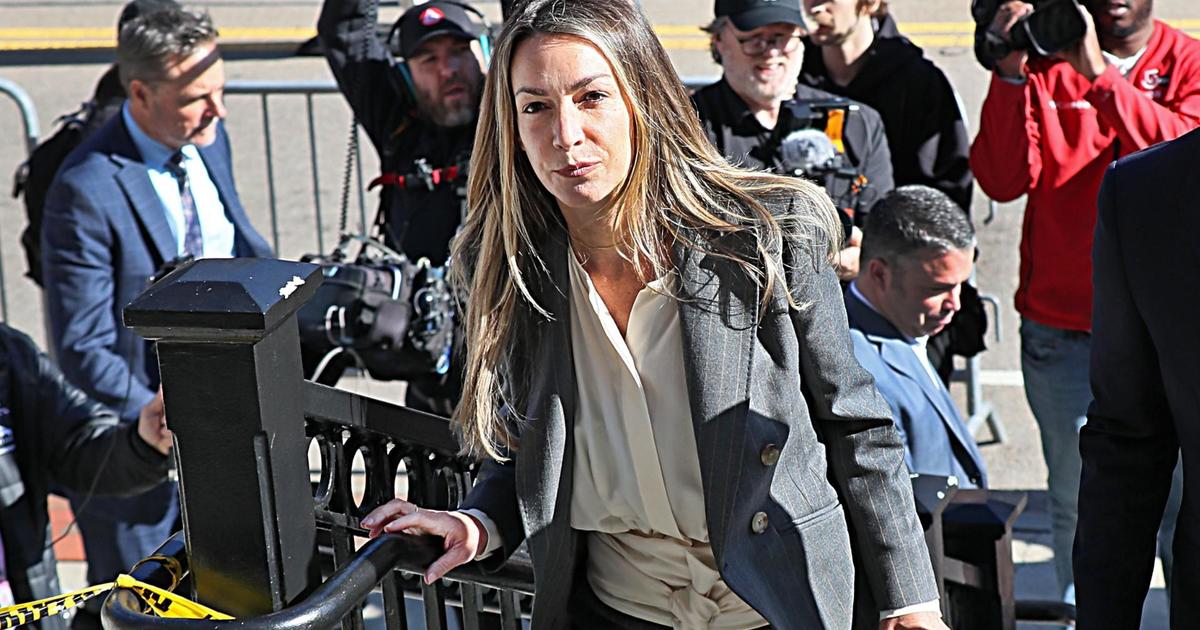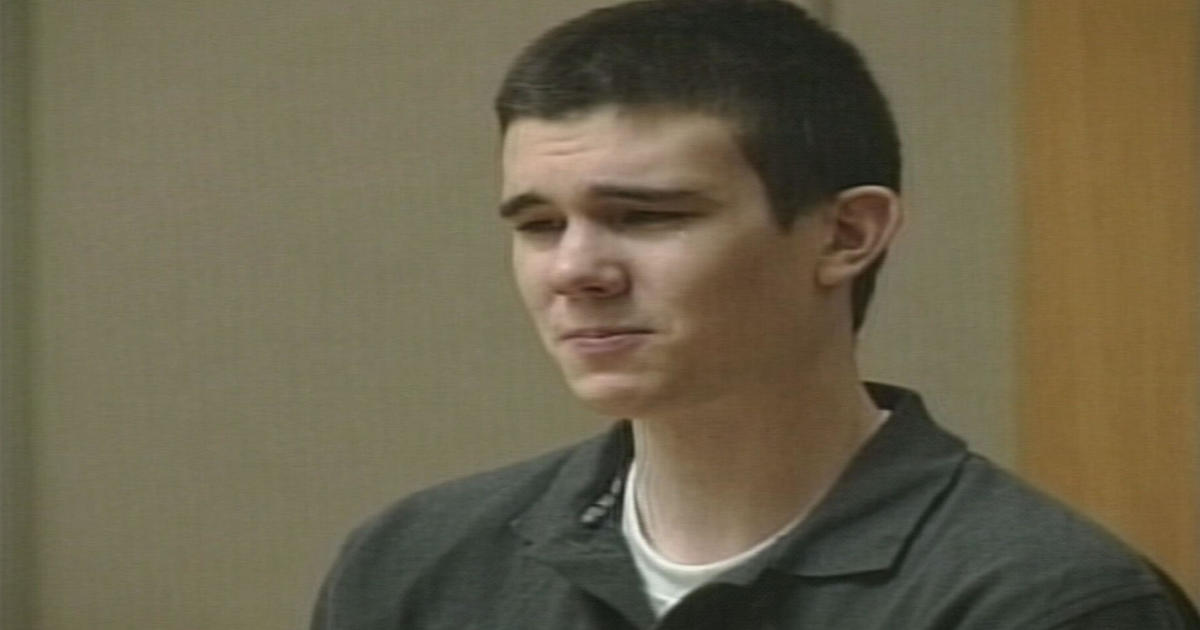Convicted Murderer Wants New Trial Over Prosecutors' Flip-Flop
BOSTON (AP) — After Alberto Cintron was shot five times during an attempted robbery, he managed to call 911 and identify his downstairs neighbor as one of his assailants.
The neighbor was convicted of murder, but now his lawyers say prosecutors should not have been allowed to use the 911 call as evidence. His lawyers say prosecutors are contradicting what they had argued during a co-defendant's trial, when they said that the call was unreliable since the victim had lost blood and had been drinking alcohol.
The neighbor, Christopher Middlemiss, is asking the highest court in Massachusetts to overturn his conviction. He argues that prosecutors are violating a legal doctrine that precludes them from taking a position in one legal proceeding contrary to a position they took earlier in court.
"While using Cintron's alcohol consumption and overall condition as the yardstick for measuring his reliability, the Commonwealth presented Cintron's 911 statements as reliable in this case, but at Morgan's trial maintained that they were unreliable," Middlemiss' attorney, David Keighley, argued in his appeal.
Prosecutors say there was nothing contradictory about the way they used the 911 call at the two trials.
The medical examiner testified during the trial of co-defendant Joseph Morgan that the victim would have suffered "a period of diminished capacity" due to blood and oxygen loss, Assistant District Attorney Casey Silvia said. A prosecutor also suggested in closing arguments that Cintron correctly identified Middlemiss but was unable to identify Morgan due to "an honest mistake in perception" based on his medical condition at that time.
The state never went so far as to suggest that the 911 call was not admissible nor that the victim's words were unreliable but merely tried to explain why the victim would be unable to identify Morgan, Silvia said.
"This is not a directly inconsistent position by any means," Silvia argued in court documents.
According to testimony during the trials, Middlemiss and Morgan decided to rob Cintron, a Lowell drug dealer, because they knew he would likely have large amounts of cash. Since they all knew each other, both Middlemiss and Morgan put bandanas around their faces and dark hooded sweatshirts over their heads to disguise themselves.
On July 4, 2006, Cintron was shot during a robbery in his apartment. He told a 911 dispatcher the person who did it was "Chris ... one of the neighbors downstairs." He was pronounced dead shortly after at a hospital.
Middlemiss and Morgan were each convicted of murder at separate trials.
Prosecutors would not comment on the case while the appeal is pending before the high court. Middlemiss' lawyer did not respond to requests for comment.
The argument could be difficult for Middlemiss' lawyers to win because prosecutors appeared to argue the same thing at both trials, said David Rossman, a professor at Boston University School of Law.
"What the prosecutor said is that we didn't put forth an inconsistent position — what we said in the first trial is that the victim's telephone call accurately identified one person and couldn't identify the second person, and the reason he couldn't identify both of them correctly was because of the effects of having been shot," Rossman said.
Middlemiss' lawyer also argued that the 911 dispatcher had two purposes for questions she asked Cintron during the call. One purpose, to determine Cintron's location and need for medical attention, was legitimate, Keighley argues. The questions that aimed to identify who shot and robbed Cintron were improper, he said.
"Their primary purpose had nothing to do with securing a volatile scene or delivering medical care to Cintron. Instead, their primary purpose, as well as Cintron's answers, was to identify a particular suspect for a criminal investigation and prosecution," Keighley argues in court documents.
Prosecutors, however, said the dispatcher's primary purpose was to help Cintron "while ensuring that officers responding to the scene are not unwittingly confronted by an armed assailant."
"The dispatcher's tone of voice demonstrates that she (and later another officer on the line) are concerned only with finding the victim and keeping him alive until the police and paramedics can respond," Silvia argued in court documents.
"The purpose in asking the identity of the armed assailant is eminently reasonable and obvious in these circumstances: to let the officers responding to the scene of a shooting know who and what they may encounter when they arrive there."
Copyright 2013 The Associated Press.



